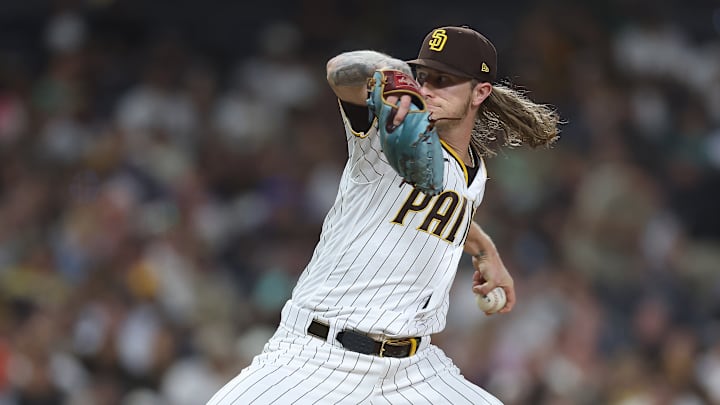Josh Hader, one of the more effective closers in Major League Baseball over the past five years, is seeking to cash in with his new contract. The free agent is seeking a deal larger than the five-year, $102 million contract New York Mets reliever Edwin Díaz agreed to last offseason following his exceptional 2022 season.
#MLBTonight reacts to new developments on the free agency market for Josh Hader 👀 pic.twitter.com/KitNg9U6Jv
— MLB Network (@MLBNetwork) December 28, 2023
The Philadelphia Phillies have been rumored as a potential fit for the left-handed closer this offseason. However, president of baseball operations Dave Dombrowski has given no indication that Philadelphia is willing or interested in signing a reliever to that large of a deal.
Let's look at why the Phillies shouldn't sign Hader with his contract demands revealed.
Hader may not perform like a top closer following the deal
Philadelphia agreed to a long, expensive contract last offseason — 11 years, $300 million with shortstop Trea Turner. However, the infielder's performance in 2023 was far from what he, the organization, or fans expected.
Turner had an up-and-down campaign and is among the top players on the team with the most to prove in 2024. If he has a second consecutive year with the same struggles offensively and defensively, it will be a case of buyer beware for the Phillies.
The same could be said of signing Hader to an expensive contract. No one knows what can happen. After all, Díaz suffered a season-ending knee injury during a celebration before last season started in the World Baseball Classic.
There are simply no guarantees as to how the left-hander nicknamed "Haderade" will perform following the deal. Despite the Phillies having questions about who will be their closer in 2024, the club would also be taking a risk in signing the free agent after offering another free agent a big deal.
Hader made himself unavailable for a four-out save opportunity in 2023
During a contest last season against the San Francisco Giants on September 25, the San Diego Padres were in a close game with a slim chance of making the playoffs. The club was not eliminated from playoff contention but could not afford to lose any more games.
Blake Snell pitched a great game for San Diego in a low-scoring affair, and the club had a chance to win. Hader declared himself unavailable to pitch a four-out save with the Padres' low chances of making the playoffs and his pending free agency influencing his decision-making.
The closer was looking out for his best interests in the situation. Depending on how readers view the situation, they may determine that Hader was smart by looking out for himself with his pending free agency near. Some may argue that the reliever was being selfish by choosing not to help his team win even though the Padres didn't have a good chance of making the postseason.
When asked to clarify his decision-making, Hader commented: "It's the situation that we were at." He asked rhetorically, "Are we in the playoff race? It has nothing to do with the offseason. It's the now, it's the health, it's the making it through the entire season -- 162 games is not an easy task to do. You see guys work overloads, they get injured."
Perhaps this is an incident not worth making a big deal out of. However, should the Phillies offer Hader, who appeared to put his interests ahead of the needs of his team in this circumstance, a deal? After all, the reliever's contract demands are a lot, and Philadelphia may need him to pitch during the season on short rest and for more than three outs.
How long would the Phillies have Hader on their roster?
Díaz has a player opt-out available in his contract following the 2025 season. Since Hader is seeking a deal similar to that of the Mets reliever, how many seasons would the left-hander be guaranteed to pitch for Philadelphia if he had an opt-out in his contract?
Josh Hader secures the save for the Padres 👏 pic.twitter.com/bhbwDIBdmM
— FOX Sports: MLB (@MLBONFOX) September 8, 2022
If Hader has a player opt-out clause in his new deal similar to Díaz's, the Phillies may only get two guaranteed years with the left-hander as a member of the organization. The 29-year-old may decide to leave the organization to make more money. He would be 31 and could be in a position to aim for the last big payday of his career.
Assuming Philadelphia wins a championship in 2024 or 2025 with Hader, the argument could be made that it's worth only having the closer for two seasons before he exercises a player opt-out clause in his contract.
However, there is some appeal in wanting him to remain with the team for longer than two years, especially if he remains one of the league's top relievers in accumulating saves. Due to the Phillies being in a position to win a World Series, the risk may be worth it, especially if the closer ends up being what puts the club over the top.
